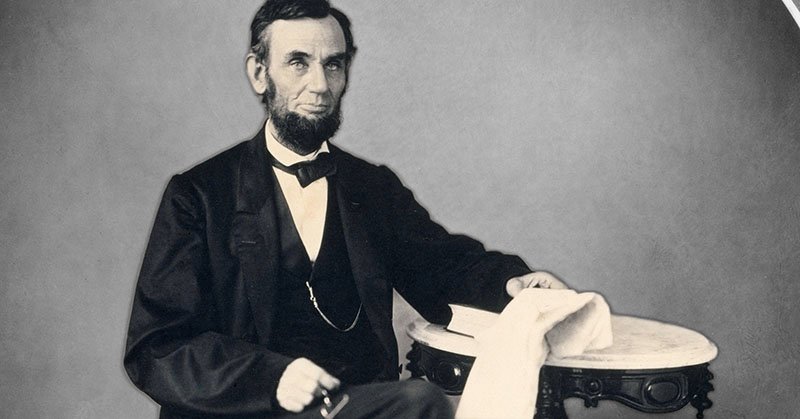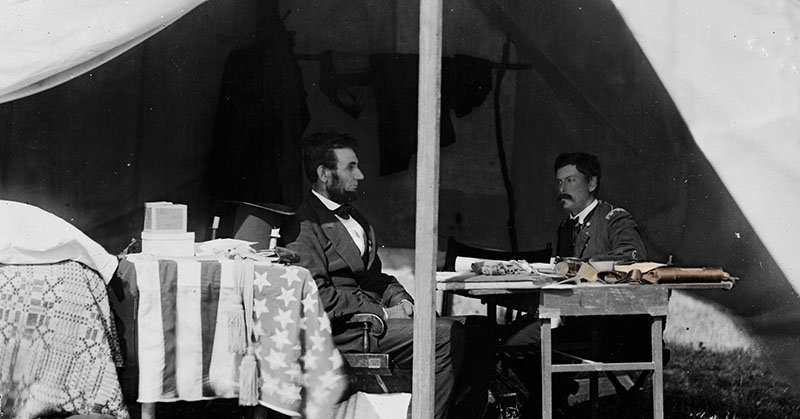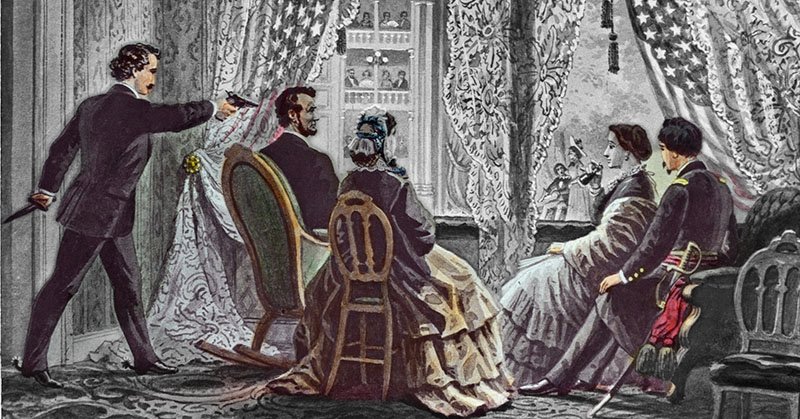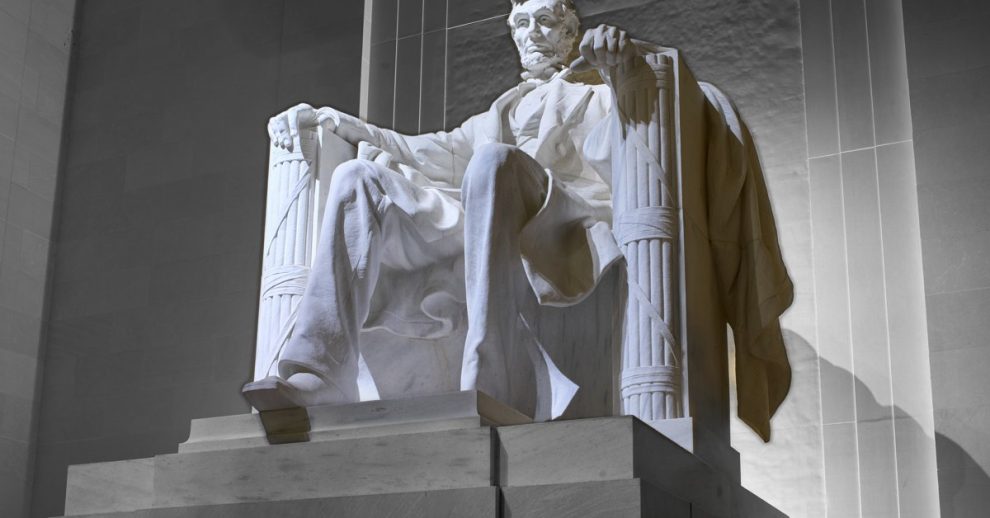Abraham Lincoln, born in 1809, is best remembered for his leadership during one of the most turbulent periods in American history, the Civil War. Rising from humble beginnings in a log cabin in Kentucky, he went on to become the 16th president of the United States. Despite his public life, Lincoln’s personal life was marked by significant hardship, including the loss of his beloved son, Willie, and the struggles of his marriage to Mary Todd Lincoln. His family included four children, though only one, Robert Todd Lincoln, lived to adulthood. Lincoln’s death at the age of 56 shocked the nation, but his legacy continues to shape the United States. This article delves into 25 surprising facts about the man who remains one of the most influential presidents in American history.
Lincoln’s Self-Deprecating Wit

1. Many people, including Abraham Lincoln himself, considered him unattractive. During a debate, when accused of being “two-faced,” Lincoln humorously retorted, “If I had two faces, would I be showing you this one?”
2. Abraham Lincoln had a high-pitched voice, often described as shrill, sharp, and unpleasant.
3. In October 1860, just weeks before his election as president, 11-year-old Grace Bedell wrote to Abraham Lincoln, suggesting he grow a beard. She believed that whiskers would make him more appealing to women, who would then persuade their husbands to vote for him. By his inauguration in March 1861, Lincoln had grown the iconic beard that became a hallmark of his image.
4. At age 32, Abraham Lincoln experienced a deep depression, partly due to guilt over an affair that he felt wronged his wife. He described himself as “the most miserable man living” and contemplated suicide. Lincoln’s lifelong battle with melancholy (that we now recognize as clinical depression) was so severe that his community placed him under a “suicide watch.”
5. Before his presidency, Abraham Lincoln was an avid boater who frequently traveled the Ohio and Mississippi rivers. His boat often got stuck on sandbars, inspiring him to invent a method for buoying vessels over shoals in 1849. This invention earned him a patent, making Lincoln the only U.S. president to hold one.
6. Before entering politics, Abraham Lincoln was an accomplished wrestler. He once boldly declared to a crowd, “I’m the big buck of this lick. If any of you want to try it, come on and whet your horns.” His challenge went unanswered. Notably, Lincoln is also in the Wrestling Hall of Fame, having fought over 300 matches and losing only one.
7. State auditor James Shields challenged Abraham Lincoln to a duel in 1842, while Lincoln was serving as an Illinois state legislator. As the challenged party, Lincoln had the right to choose the weapons and selected broadswords “of the largest size” to leverage his superior reach and height. This prompted Shields to back out and call for a truce.
8. Convinced he would lose the 1864 election, Abraham Lincoln asked Frederick Douglass to lead efforts to free slaves in the South before a new president took office. Despite his doubts, Lincoln won re-election.
9. Abraham Lincoln once wagered a fur hat that he could lift a barrel of whiskey off the floor and drink from it. He successfully won the bet.
10. In Bloomington, Illinois, Abraham Lincoln delivered a speech so captivating that every reporter in attendance forgot to take notes. As a result, no transcript of this speech exists, leaving its content a mystery.
Lincoln’s Window Escape Tactics

11. In 1840, Abraham Lincoln and four other Illinois legislators famously jumped out of a window to prevent a quorum for a vote aimed at eliminating the Illinois State Bank. This wasn’t Lincoln’s first attempt to disrupt a vote in such a manner.
12. Under Abraham Lincoln’s presidency, the largest mass execution in American history took place. On December 26, 1862, authorities publicly hanged 38 Dakota warriors after convicting them of war crimes, primarily for their involvement in the brutal killings of settlers during the Dakota War of 1862, which was triggered by a combination of starvation, broken treaties, and encroachment on their land.
13. During the Civil War, individuals had the option to legally avoid the draft by either paying a $300 fee or hiring a substitute to fight in their place. This option was often utilized by the wealthy to evade military service. Even Abraham Lincoln reportedly paid a man $500 to enlist on his behalf.
14. In 1863, Abraham Lincoln declared Thanksgiving to be celebrated on the last Thursday of November, intertwining it with mid-19th-century identity politics. Many Southern families rejected this holiday and the pumpkin pie, viewing them as cultural symbols of the Yankees.
15. Abraham Lincoln addressed a critic’s question about emancipation by writing, “If I could save the Union without freeing any slave, I would do it, and if I could save it by freeing all the slaves, I would do it, and if I could save it by freeing some and leaving others alone, I would also do that.”
16. Abraham Lincoln held a license as a bartender and co-owned a saloon named Berry and Lincoln in Springfield, Illinois.
17. Whenever Abraham Lincoln felt the urge to tell someone off, he would write a “hot letter” filled with his anger. He would then set the letter aside until his emotions cooled, as Doris Kearns Goodwin explained on NPR. Lincoln would later mark it with “Never sent. Never signed.”
18. In 1862, Abraham Lincoln signed the Morrill Act, establishing a system of land-grant colleges and universities. This landmark legislation revolutionized higher education in the United States. It played a crucial role in transforming the country into a scientific and engineering powerhouse, laying the foundation for future innovation.
19. The name “Fido” became commonly associated with dogs due to Abraham Lincoln’s pet dog, Fido. Tragically, a drunk man with a knife “assassinated” Fido a few months after Lincoln’s own assassination.
20. In August 1864, a sniper attempted to shoot Abraham Lincoln as he left the White House. The bullet missed by inches, passing through Lincoln’s hat and knocking it off his head. Lincoln, who had left without guards, was riding to an evening retreat.
Secret Service Origins and Lincoln’s Tragedy

21. Abraham Lincoln authorized the creation of the Secret Service on April 14, 1865, primarily to combat the rampant issue of counterfeit money, which at the time accounted for nearly half of all U.S. currency. Tragically, later that same day, John Wilkes Booth assassinated him at Ford’s Theatre. The Secret Service did not take on its presidential protection role until years later, in 1901, following the assassination of President William McKinley.
22. John Wilkes Booth meticulously timed the fatal shot at Abraham Lincoln to coincide with a humorous line from the play “Our American Cousin,” knowing the audience’s laughter would mask the sound of the gunfire. The line, “You sockdologizing old man-trap,” elicited uproarious laughter. Furthermore, with modern medical advancements, Lincoln might have survived the assassination, as his frontal lobes remained undamaged, and he succumbed to his injuries 10 hours after being shot.
23. Samuel J. Seymour, the final living witness to Lincoln’s assassination, lived to share his experience on national television. On February 9, 1956, he appeared on the show “I’ve Got a Secret.” His recollections provided a rare, firsthand account of that fateful night at Ford’s Theatre on April 14, 1865.
24. Following suspicions of Catholic involvement in Abraham Lincoln’s assassination, the United States severed diplomatic ties with the Holy See. This break in relations lasted for over a century, with the U.S. not restoring official diplomatic relations with the Vatican until 1984.
25. Abraham Lincoln’s lineage came to an end in the late 20th century, as none of his great-grandchildren had any offspring. His last known direct descendants passed away in the 1970s and 1980s.














Add Comment